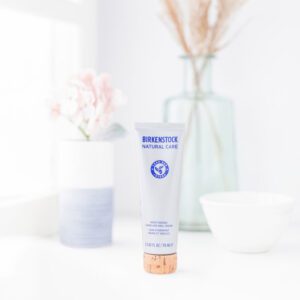Dry Skin in Babies: How to Care for Your Little One’s Sensitive Skin

Children with sensitive skin can face serious challenges when it comes to finding the right skincare products to help them stay healthy and happy as they grow up. After all, if your child has dry skin, it’s likely because their skin isn’t able to properly retain moisture from moisturizers or other treatments you might use to keep their skin happy and healthy. If you have a child with dry skin, read on for some important tips about how to care for your little one’s sensitive skin so that they can feel comfortable throughout the day.
What is dry skin?
Dry skin is a common condition that can affect anyone at any age, but it’s especially common in babies. Dry skin is caused by a loss of moisture in the top layer of the skin. It can make your baby’s skin feel dry, rough, and scaly. It can also cause your baby’s skin to itch, crack, or bleed. In infants, dry skin can lead to other problems like diaper rash and impetigo.
 What causes it?
What causes it?
There are a few things that can cause dry skin in babies. First, it could be genetics. If you or your partner have dry skin, your baby is more likely to inherit that trait. Second, weather can play a role. Cold, dry air can sap moisture from the skin, causing it to become dry and cracked. Third, hot baths can actually strip the natural oils from the skin, leaving it feeling dry and irritated. And lastly, certain medical conditions can cause dry skin as well. If your baby has eczema or psoriasis, they may experience dryness and cracking as a result.
How can you care for your baby’s dry skin?
1. Start by using a soft, hypoallergenic cleanser on your baby’s skin.
2. Apply a moisturizer immediately after bathing while the skin is still damp. Look for products that are specifically designed for babies and that are fragrance-free and hypoallergenic.
3. Make sure your baby’s room is not too hot or too cold, as extreme temperatures can dry out the skin.
4. Use a humidifier in your baby’s room to help add moisture to the air and soothe dry skin.
5. Avoid using harsh soaps, detergents, or other chemicals on your baby’s skin.
Skin care tips
Tips for caring for dry skin in babies
Use an intensely moisturizing bathing bar:
 Do not use soaps that contain fragrance or sodium lauryl sulphate on your baby. The skin is more fragile and susceptible to irritation, and these chemicals can exacerbate dryness. Instead, use a soap with natural emollients such as lanolin or glycerin. Both of these leave a protective film on your baby’s skin to help lock in moisture. Avoid bathing too often as it can remove healthy oils from your baby’s skin which may lead to even drier skin. Bathe your baby every three days or when they start getting greasy looking, whichever comes first. After a bath pat the baby down gently but do not rub their backside as this may irritate their sensitive anal area which has thinner tissue than the rest of their body.
Do not use soaps that contain fragrance or sodium lauryl sulphate on your baby. The skin is more fragile and susceptible to irritation, and these chemicals can exacerbate dryness. Instead, use a soap with natural emollients such as lanolin or glycerin. Both of these leave a protective film on your baby’s skin to help lock in moisture. Avoid bathing too often as it can remove healthy oils from your baby’s skin which may lead to even drier skin. Bathe your baby every three days or when they start getting greasy looking, whichever comes first. After a bath pat the baby down gently but do not rub their backside as this may irritate their sensitive anal area which has thinner tissue than the rest of their body.
Moisturize your baby’s skin:
 Be sure to apply a gentle moisturizer on your baby’s skin immediately after drying them off and rubbing them dry. Use an oil based or rich cream type that contains lanolin or glycerin. Apply it in small amounts while gently rubbing it into their skin. Cover their legs, arms, hands and bottom with soft cotton clothes that let their skin breathe freely. Replace wet nappies every time you change them. It is also important to keep your baby’s skin as clean and dry as possible.
Be sure to apply a gentle moisturizer on your baby’s skin immediately after drying them off and rubbing them dry. Use an oil based or rich cream type that contains lanolin or glycerin. Apply it in small amounts while gently rubbing it into their skin. Cover their legs, arms, hands and bottom with soft cotton clothes that let their skin breathe freely. Replace wet nappies every time you change them. It is also important to keep your baby’s skin as clean and dry as possible.
Keep your baby hydrated:
 Water is one of the best ways you can hydrate your baby’s skin. Make sure they drink enough by offering them small amounts throughout the day instead of large amounts at once. If your baby is breastfed, their diet should be water rich and moisturizing. Breast milk contains important nutrients and healthy fats that help prevent dryness in babies. Ensure your baby consumes plenty of fluids (water).Never hesitate to consult a doctor if you have any concerns about your little one’s skin. Remember, patience is key when dealing with dry skin in babies!
Water is one of the best ways you can hydrate your baby’s skin. Make sure they drink enough by offering them small amounts throughout the day instead of large amounts at once. If your baby is breastfed, their diet should be water rich and moisturizing. Breast milk contains important nutrients and healthy fats that help prevent dryness in babies. Ensure your baby consumes plenty of fluids (water).Never hesitate to consult a doctor if you have any concerns about your little one’s skin. Remember, patience is key when dealing with dry skin in babies!
Keep your baby’s skin protected at all times:
 Dress your baby appropriately by always wearing socks and protective gloves. Be sure to only use cotton materials on their skin that breathe well and have been tested on baby skin. For shoes, stay away from rubber soles which can retain heat and humidity on their feet which may be uncomfortable. Instead, go for open shoes with leather or suede as they allow air circulation while also offering protection against dirt and cold weather. When going out in the sun, cover your baby’s head with a hat and dress them in clothing made of breathable fabric. Choose a sunscreen product with SPF 30 or higher to protect your baby’s delicate skin. Never expose your child to tanning beds or excessive UV exposure without supervision.
Dress your baby appropriately by always wearing socks and protective gloves. Be sure to only use cotton materials on their skin that breathe well and have been tested on baby skin. For shoes, stay away from rubber soles which can retain heat and humidity on their feet which may be uncomfortable. Instead, go for open shoes with leather or suede as they allow air circulation while also offering protection against dirt and cold weather. When going out in the sun, cover your baby’s head with a hat and dress them in clothing made of breathable fabric. Choose a sunscreen product with SPF 30 or higher to protect your baby’s delicate skin. Never expose your child to tanning beds or excessive UV exposure without supervision.
Rely on moisturizing wipes:
 To wipe your baby’s hands, bottom and face use moisturizing wipes. You can get these from most pharmacies and chemists. Avoid using cotton wool or tissues as they can be too harsh on your baby’s sensitive skin. Moisturizing wipes tend to be gentler on their skin and are a great alternative that you can use frequently throughout each day. Be sure not to wipe too hard as it may irritate their already sensitive skin. The wipes should be moist enough so that when you apply them you won’t feel rough patches of fabric against your baby’s delicate skin.
To wipe your baby’s hands, bottom and face use moisturizing wipes. You can get these from most pharmacies and chemists. Avoid using cotton wool or tissues as they can be too harsh on your baby’s sensitive skin. Moisturizing wipes tend to be gentler on their skin and are a great alternative that you can use frequently throughout each day. Be sure not to wipe too hard as it may irritate their already sensitive skin. The wipes should be moist enough so that when you apply them you won’t feel rough patches of fabric against your baby’s delicate skin.







